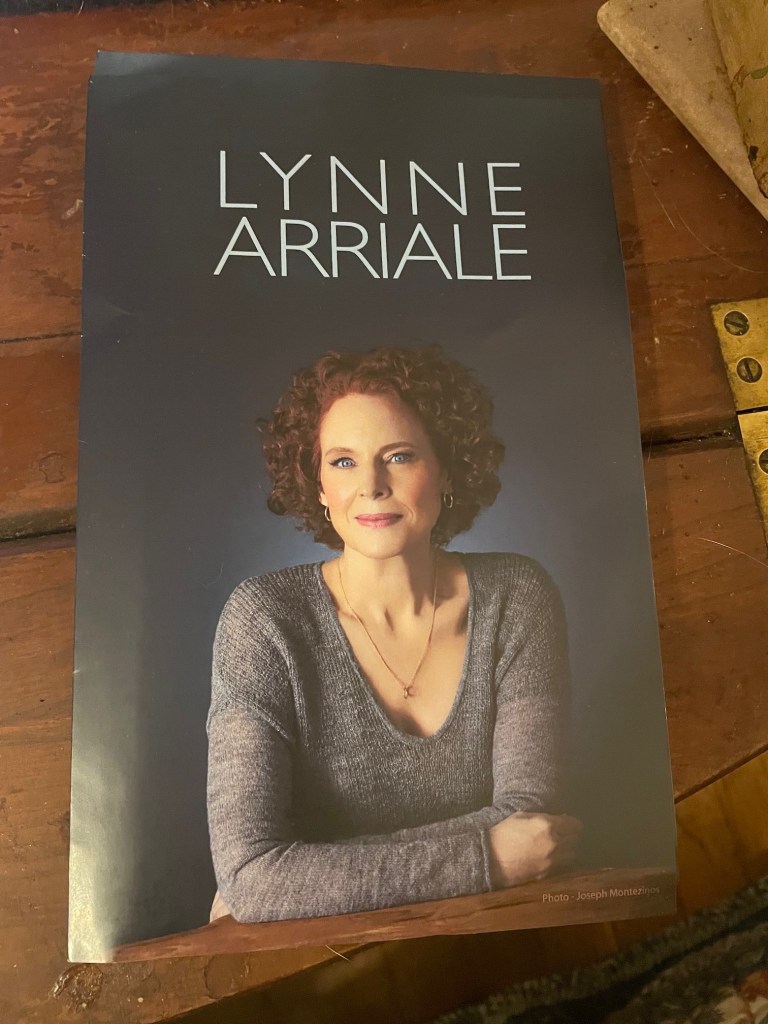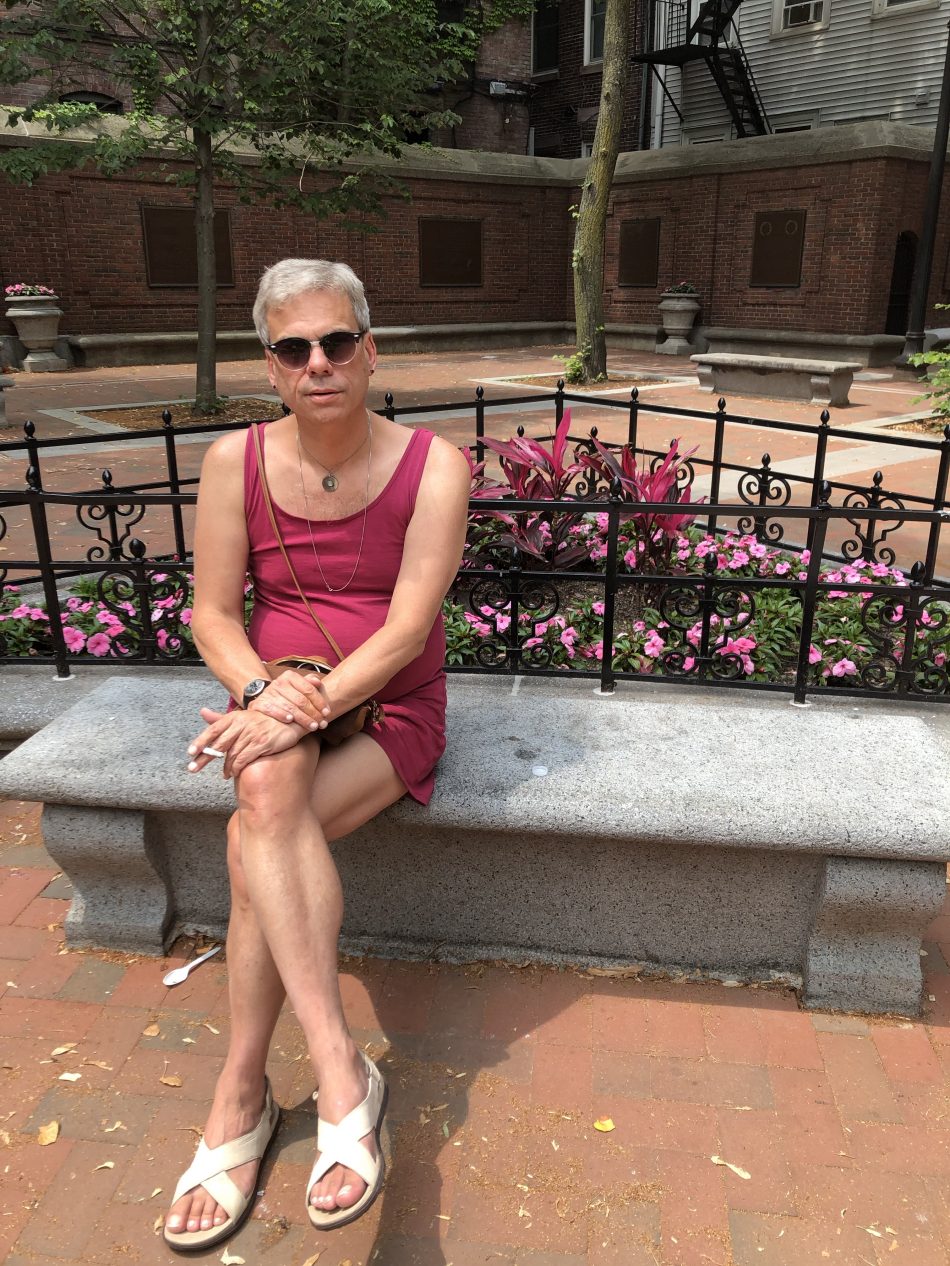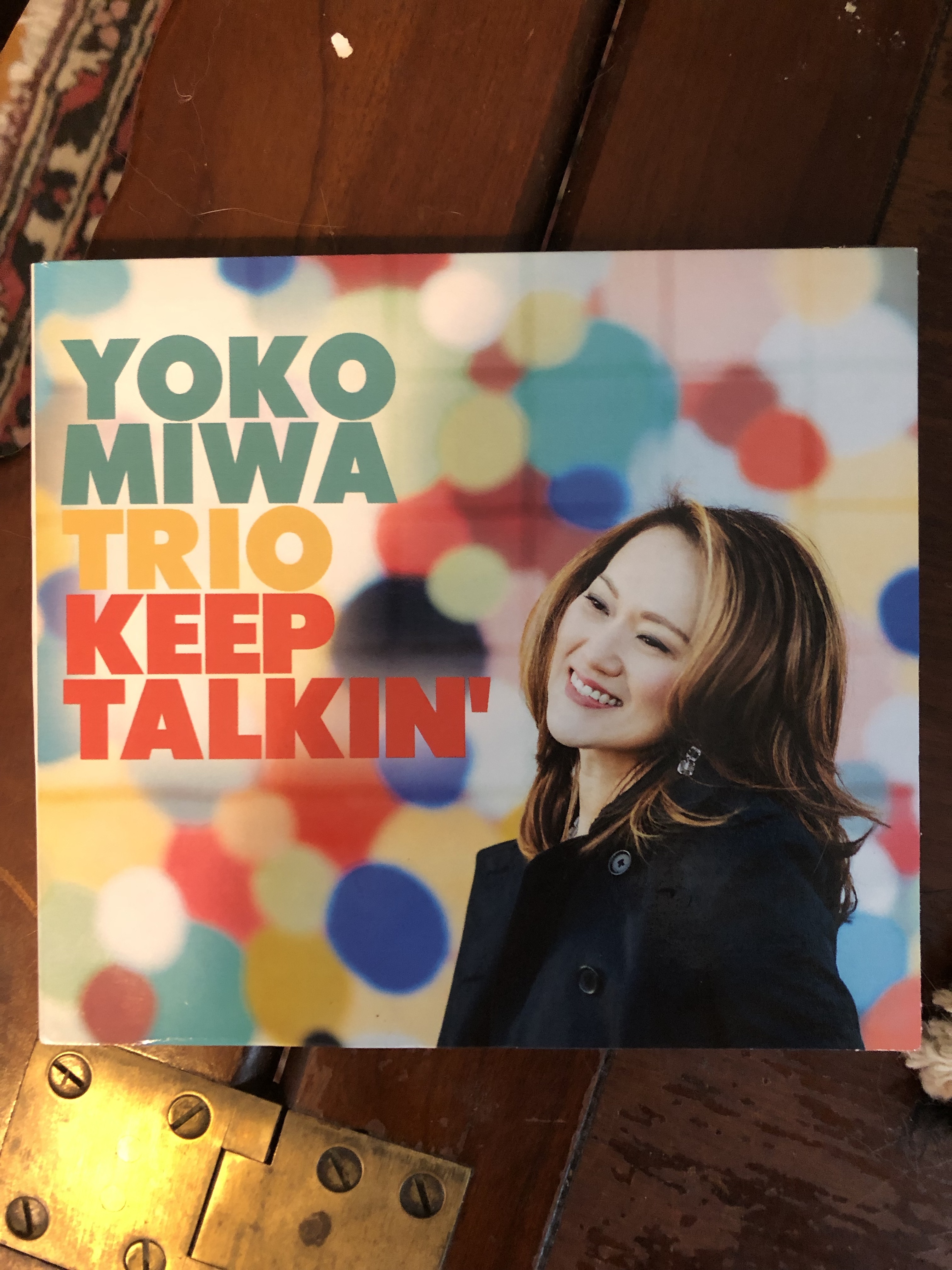Marka just had to go on. Somewhere deep inside, she was climbing the big rocks of a steep mountain, and the rocks kept getting bigger. She knew she was reaching something – her signals told her that – some big dark blue sky, and she was reaching it, she was reaching it with her strength, which was all the strength she had, a woman’s strength, and it was hers.
The power came from inside her. And she knew it was there. It was there as sure as the big mountain in front of her, which wasn’t really there, it was just inside her. But she kept climbing, climbing inside her mind. It was glorious and magnificent. She reached it; she reached the sky.
It took her most of her life to reach it. From when she was a girl, she was always climbing. It made her what she was. She climbed trees in her backyard, just like a boy. She climbed inside of the attic, to find her mother’s clothes, and put them on and wear them. She felt like such a mature woman when she did this – the dresses and lacy underwear, the stylish, fashionable coats of another decade – she felt magically placed the evening parties of her mother’s days.
As a child she dreamed she would find a robin’s nest, and she would keep the eggs as souvenirs. The tiny, speckled, light blue eggs were magical to her and once, she dreamed she had climbed a tree and found a nest, and the mother robin bit her with her yellow beak when she got there.
She would dream of climbing the highest tree, and reaching the very top, where the branches grew slight and thin. She was never scared of falling out of trees, but she did have some short falls that put the wind out of her. it was the usually the same pine trees in her backyard, in the suburbs of an old city.
Her whole life was a climb of sorts, with odd jobs and careers that didn’t work out, her wish and aspiration to be a teacher, for which she had such enthusiasm, but which never went very far. She tutored those in need, a diverse population, which was one of the most gratifying things in her life. She had a wonderful knowledge of literature, and she helped the students reach the level that she had. She pulled deep into herself, and she found she loved her student, who looked up to her like a heroine.
She would climb when she read at night – deep philosophy, modern, international novels from around the world. She liked the English and Japanese best, with their polished, surreal and psychological feeling. She liked books on music, and she had much, which she read with passion.
She climbed the walls of the long, winding halls of her memory when she wrote poetry. The straight girls who rebuffed her because she was a lesbian, and they didn’t understand lesbians. Many of them found her attractive and pretty, and sexually appealing.
She pulled out a piece of paper and started writing some lines of verse. This is when the bucks of memory began. She would go back so many years and get stuck in her tangled history. With this came the perception and the focus, as if she had exposed a camera lens for an extended period of time, so her poetry was really vivid and intense.
Poetry could make her break. It made her gasp for sure things, when everything around her was hazy and incorporeal and vague. She would write to work out her problems, but sometimes the problems became multiplied. But the process was an achievement. She was climbing, reaching the highest level, finding herself, in all of what that meant. Which meant everything to her, for it was all that she could do, and she had done it.
Marka had written so much poetry she felt she was making food for people no one could ever eat it. This had to be enough. She wished to find a point where she could end, and she would be rewarded for what she had done, and she could just rest on her laurels. But it was an everlasting process. Even if she stopped writing, there was the will to go on, until the very end. She just kept on writing.
Writing was an exhilaration for her. It kept her sane, but it was an endless battle, with the same things that made her healthy making her helpless and causing her to be subsumed under a wave of helplessness. But writing gave her wisdom. Poetry had been kept her inside, banging against the walls of the cell. Poetry was condensed language. It was packing the ball tighter and tighter. It was polishing glass. It was mirrors reflecting light, reflecting mirrors. It was fabulous and fascinating, but draining and exhausting. She felt if she could just escape it, she could live on, taking life on a transcendent level.
But she went on with her writing – the stories and memories and essays, where she traced her methods and process, and the life that led her to that process. It was fiction, which meant putting her life on a subjective level, something she could push back and take perceptually.
Marka looked at herself, she looked at herself in the mirror. But it was the reminiscence of a mirror, even if it was the same mirror that she had looked in this morning. She peered at her lovely face. She was happy with her face. She was shapely and comely, and even pretty. She wished she could just live life for glamour and to have her body, to be an icon of love, and be famous. But being famous meant facing other people, mixing with large crowds which meant letting go of her private life. But it could also mean rising above this and looking above it, experiencing it at a removed level where she could choose whom to be with; other intelligent, glamorous people.
She felt her writing had to lead to something better. It could not be its own reward. It was a huge, great sacrifice. She would find that thing, if it was finding glamour, or fame, or the fascination with her own body that led to the mystery of being a woman.
Marka looked forward to the next day. It would be sunny and warm. This May had been cold so far, or at least quite cool by usual standards. She could wear her favorite red summer dress. She also had a leopard-patterned and a black dress she liked. And she had the AOC and Ilhan Omar t-shirts she could wear with a black denim dress.
Writing poetry had opened up her feelings about herself as a subjective woman and helped her self-actualize. Choice and decision were so much a part of it, just as it was with clothing. And poetry really was a kind of clothing, even of the body. Clothing made you appear more naked, for it is when we express ourselves that we reveal ourselves most, in the language we use to talk about our lives.
Marka was not afraid of appearing naked. She loved her body. She had always felt that she was not strong. But she was strong, it was a woman’s strength. Her body and her mind were aligned, as she learned and practiced what she was taught in yoga. What strengthened her body strengthened her mind. What gave her health gave her peace.
She knew the basic happiness of the body came from the routine of the day, even if it was just regular cooking and housekeeping, and hygiene. Her poetry disrupted this, when it became particularly intense. But when she had written hard, she could look at her self-care and domestic tasks as axiomatic and an extension of that study, and the process became reflexive, with the body and mind aligned.
Early on, when she was eighteen, Marka climbed out of a deep hole. The hole made her feel very dirty and alone. She kept slipping down the muddy sides and falling into a dirty pool. It broke her. The whole rest of her life had consisted in rebuildiing the lost grace, and the strength which she had never really developed, since she was so young. But it turned her into an artist. Marka arrived late as a full-blown poet, but the blooming had been dramatic, and beautiful, and forceful with quick speed, though it was as slow as her life.
And she was glad she had passed her life slowly. It was the converse of the speed of her poetry. There was so much she could look back on in her career as a poet. With her practice, she mined the ditches of her memory, but looking back on the whole of her past as a poet took her to a another level, a meta level, on which she could see herself, the whole person, but attached to herself, safe in the arms of her body, climbing with her mind while her body was free. She could climb deep in her mind, opening up the doors to her new self, the new self she was always becoming.
The new self she was always becoming as she climbed, higher and higher, into the sky, which would accept her as the woman she was, the woman poet dreaming of climbing into the sky, into herself, she who made a life of becoming a better person. A better person and a better woman, a woman that loved, but watched each step she was taking up the tower she had found in the country, to look out over it, and see what she had done, for this was her country, the country of a woman who could say anything she wanted, because it would be right. Because she lived right, Marka lived right, and she kept on living.


 Yoko Miwa is a light, bluesy stylist, with a heavy soul, whose bop/swing/flash style evokes Keith Jarret and Bud Powell as much as Bill Evans, to whom she has often been compared. Keep Talkin’, her new album in a string of four major music statements, starting with 2011’s Live at Scullers (Jazz Cat Amnesty Records), is bright and happy, as suggested by the colorful balloons in the background of her lovely profile on its cover. With Scott Goulding on drums, Will Slater on bass (with a guest appearance by Brad Barrett). it is glossy and glassy and strong, with orchestral overtones produced by the trio capable of a much larger sound than their minimalist disposition would imply.
Yoko Miwa is a light, bluesy stylist, with a heavy soul, whose bop/swing/flash style evokes Keith Jarret and Bud Powell as much as Bill Evans, to whom she has often been compared. Keep Talkin’, her new album in a string of four major music statements, starting with 2011’s Live at Scullers (Jazz Cat Amnesty Records), is bright and happy, as suggested by the colorful balloons in the background of her lovely profile on its cover. With Scott Goulding on drums, Will Slater on bass (with a guest appearance by Brad Barrett). it is glossy and glassy and strong, with orchestral overtones produced by the trio capable of a much larger sound than their minimalist disposition would imply.